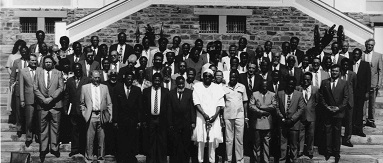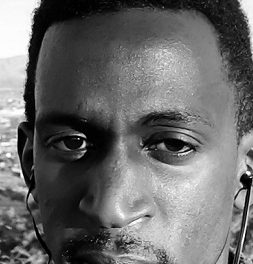
The constitution is a living document

By His Excellency, President Dr Hage Geingob.
As we commemorate this historic day, which marks the adoption of the Constitution of the Republic of Namibia 32 years ago, we are reminded about the difficult journey we have travelled to be where we are today.
Namibians, united in their diversity and conscious of their right to be free in their land, fought bravely against oppression to determine their destiny as free people. In pursuit of that goal of freedom, many paid the ultimate price.
The adoption of the Constitution on 9 February 1990 was therefore a significant milestone in our journey for self-determination because it laid the basis for our independence and the founding of our constitutional democracy on 21 March 1990.
Our Constitution is a living document and worth cherishing. As imagined by the founders of our Republic, the Constitution and the values enshrined therein did not only set out to protect the rights of Namibians, but more importantly, it sought to explain citizen’s obligations and defined the institutions of Namibia, what their powers are, and how these powers may be used in the Governance Architecture of the Republic of Namibia.
In part, it is why the Constitution, which grounds the rule of law provides for the separation of powers in which the Executive, Legislature, and Judiciary carry out their powers independently. I have always emphasized the Constitution as the Supreme Law and as a living document, which must be internalized by every citizen in the pursuit of full enjoyment of their rights and for the benefit of social cohesion and nation-building.
Thus, as we exercise our rights, we should always do so in furtherance of the rights of fellow citizens to consolidate peace, unity and stability. Without peace and stability, the pursuit of happiness and socio-economic progress will be stunted. In that vein, by shunning division, tribalism, racism, corruption and crime, all Namibians have to act as promoters and safeguards of the democratic values of liberty, unity, justice and solidarity, which are the raison d’ tre of the Namibian House and the Republic of Namibia.
As a Government, we are guided by the fact that a good Constitution, though a condition sine qua non for Effective Governance, is in itself not sufficient if not buttressed by processes, systems and institutions that are geared towards the welfare and shared prosperity of our people.
Regrettably, over the past 2 years, our country has been battling the deadly Covid-19 pandemic, which affected the health and socio-economic livelihoods of our people. However, my confidence in the strength of our processes, systems and institutions buttressed by our Constitution remains a source of inspiration. Indeed, when we all pull in the same direction, we can overcome the challenges of poverty and inequality, which have been exacerbated by the invisible enemy of Covid-19.
To defeat Covid-19 and to return our country to the path of economic growth, I urge Namibians to get vaccinated because vaccines are available and they are safe.
The Constitution we adopted 32 years ago and the ingenuity of every Namibian should give us hope that better days lie ahead for the Republic of Namibia. In celebration of this occasion, we should take pride in the progress we have made over the past 32 years in the provision of basic amenities such as housing, education, social protection and employment opportunities to the majority of Namibians.
In this Year of Reimaging, as citizens of the only country, we can call our home, we also need to pause on this day, Constitution Day, to reflect and to take concrete actions in favour of the Namibia we want for ourselves and future generations.
Happy Constitution Day!
 Members of Namibia’s National Assembly in 1990 (Namibian Presidency).
Members of Namibia’s National Assembly in 1990 (Namibian Presidency).












































